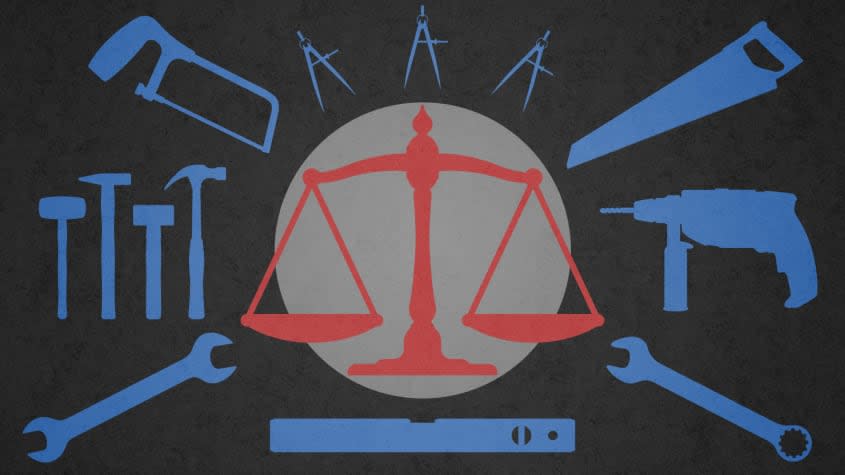Is now the time to reform the Supreme Court?

- Oops!Something went wrong.Please try again later.
The leaked draft Supreme Court opinion suggesting a conservative majority will strike down Roe v. Wade this summer has ignited debate over the future of the court. Is reform coming?
Lifetime appointments have to go
With the Supreme Court poised to overturn Roe v. Wade, says Michael Hiltzik in the Los Angeles Times, it's time to discuss "how to rein in the court's extreme conservative slant." There are a few widely discussed ways to address the problem. One that is starting to catch on is "eliminating the justices' right to lifetime appointments by imposing a term limit." Former President Donald Trump, by the "luck of the draw," got to appoint three of the five conservative justices in the majority that, according to a draft opinion leaked this week, is going to strike down Roe, which established the constitutional right to abortion and protected it for nearly 50 years. With lifetime appointments, this hard-right tilt on the court will last decades, given life expectancies that are now far beyond what the Founding Fathers could have imagined. Fixed terms of 18 years, say, would "provide an opening every two years, or two every presidential term," and make it harder for the right, or the left, to dominate the bench.
Add more justices to even the bench
The hitch is that it's not clear the Constitution gives Congress the power to impose Supreme Court term limits, say Amelia Thomson-DeVeaux and Michael Tabb at FiveThirtyEight. That leaves Democrats with "one crazy, pull-the-fire-alarm solution: They could add more justices to the court." The Constitution requires the United States to have a Supreme Court, but leaves it to Congress to decide how many justices it will have. It started out with six seats, briefly had 10 under President Abraham Lincoln. For most of the nation's history, it has had nine. Four progressive Democrats last year proposed increasing that to 13, but most Democrats, including President Biden, gave the idea the cold shoulder.
Packing the court is a "terrible idea," says The Economist. Which is why it's "currently a fringe position in the Democratic Party." But if the court "swings hard to the right" and the new 6-3 conservative majority "start tearing up precedents that have stood for half a century, there will be growing political pressure to remake the court." The high court could "save itself by acting with restraint," and "bolster its own legitimacy" by imposing an ethics code on itself, to disperse whiffs of partisanship like the "angling" by Justice Clarence Thomas' wife to overturn Trump's 2020 election loss.
Leave the court alone. It's not the problem
The liberal appetite for packing the Supreme Court is no surprise, says The Wall Street Journal in an editorial. Nor is "the return of fevered threats to break the Senate filibuster" to give Democrats, with their narrow Senate majority, the power they crave to remake the court. Watch, next they'll try to Impeach justices. "This fury is intended to intimidate the justices and, if that doesn't work, use abortion to change the election subject in November from Democratic policy failures." The Supreme Court's "best response" is to "ignore the political fallout and focus on the law." Chief Justice John Roberts has rightly called for investigating the leak of the draft opinion. "A statement from all nine Justices deploring the leak would be a useful defense of the court as an institution, as the liberal Justices know they may eventually be in the majority."
That's obviously not going to happen for a long time, says Harold Meyerson in The American Prospect. The makeup of the Electoral College and the Senate, our "primordial gerrymander" giving Republicans power disproportionate to their numbers, have left the United States under "minority rule," with an ever more "right-wing judiciary" making the rules for a 21st-century world it just doesn't get. There are no "readily realizable" reforms that can fix this, but remember: "Even in a democracy as flawed as ours, the majority, if it turns out in sufficient numbers, can still assert its right to rule."
You may also like
Trump's increasingly costly lawsuits: 'Witch hunt' or a modicum of justice?
5 cartoons about the leaked Roe draft
Nepali mountaineer breaks his own world record on Mount Everest

